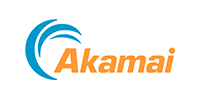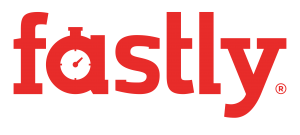Best CDN Providers for 2019
The best CDN providers can be hard to find thanks to the sheer number of content delivery network providers now available. As the industry has gone from strength to strength, many new content delivery network providers have entered the market, each offer a new and useful set of services and specialities to fill a particular niche in the industry.
As such, potential content delivery network customers have to overcome a daunting search when looking for their ideal CDN. In this article, I will take a look over two of the best CDN providers that are available in 2019 and that you should be considering if you’re looking to boost your website’s online performance.
Akamai
 Akamai is one of the world’s best CDN providers. And it’s easy to see why. Based in Cambridge, Massachusetts and founded in 1998, they were one of the first content delivery network providers to revolutionise the industry. Their popularity can be seen in the fact that the serve between 15% and 30% of all web traffic being delivered around the world.
Akamai is one of the world’s best CDN providers. And it’s easy to see why. Based in Cambridge, Massachusetts and founded in 1998, they were one of the first content delivery network providers to revolutionise the industry. Their popularity can be seen in the fact that the serve between 15% and 30% of all web traffic being delivered around the world.
Because of this highly respected reputation, the Akamai CDN boasts some of the world’s biggest companies as their customers. These customers include 3P Learning, AO.com, 5 Miles, Asus, Adobe, The Absolut Company, Airbnb, Autodesk, Audi, EMC and Informatica.
These high profile customers take advantage of Akamai’s many leading services. These services include:
Web Performance – Akamai’s bread and butter, their content delivery network and data optimisation services ensure that data is sent to end users all around the world quickly and without delay. Akamai’s web performance services consist of many technologies that work together to improve delivery speeds. These include an advanced image manager that intelligently compresses images. Images are amongst the most data heavy items of data that can be delivered onlines. This kind of image manager can help reduce file sizes and boost delivery times. In addition to this, a dynamic site accelerator helps to delivery rich dynamically generated site content, such as that hosted by social networks, efficiently. This allows customers to deliver faster website and application performance for highly interactive content, provide network capacity on demand to meet peak web traffic and deliver SSL-protected site content and mitigate security risks. Finally, advanced load balancing technologies ensure that data is always available, no matter how much demand is being placed on a website. It allows additional server resources to be called upon in times of high traffic, allowing for the optimisation of network availability so users can always reach a site, instant failover and re-routing of traffic between any origin location in the case of an outage and the scaling of website and applications globally without growing load-balancing IT infrastructure
Media Delivery – As much of today’s online content is becoming focused on rich multimedia, the best CDN providers have started offering high tech media delivery services to boost the delivery of data such as high definition video. Akamai is no exception, and their offering is particularly high quality. At the heart of Akamai’s media delivery service is their adaptive media delivery technology. This service dynamically adapts a video stream to play smoothly and consistently regardless of the device or network being used by the end user. Lower power devices operating on slow networks, such as mobile phones operating across low bandwidth mobile networks, will be delivered a lower resolution file automatically, whilst faster desktop devices on high speed broadband will receive higher definition video. Furthermore, if a device connects to a faster network mid stream, the video resolution will dynamically scale up. In addition to this, advanced analytics helps content owners see exactly how end users are interacting with their media.
Security – Many sites are prone to security threats, especially those that handle sensitive data. Akamai implements a leading security solution to help guard against these threats, specifically distributed denial of service (DDoS) attacks. These occur when a website receives a large amount of malicious traffic all at once, causing servers to become overloaded and the site to crash. Akamai is able to scale across servers to mitigate this, while also intelligently identifying bot traffic accessing a site and blocking them.
Akamai Network Reach
Part of Akamai’s appeal, as well as these leading content delivery network services, lies in its network reach. The company boasts an immense global network consisting of more than 240,000 servers in over 130 countries and within more than 1,700 networks around the world. This accounts for nearly 30 Terabits of data delivered around the world per second, with nearly 3 trillion Internet interactions each day.
Fastly
Fastly has been making headlines since its launch in 2011. Based in San Francisco, they are part of a newer crop of content delivery network providers that have aimed to shake up the market by offering innovative technologies that result in blistering content delivery network speeds.
Part of Fastlys approach involved using new technology to create a network with unparalleled speed. This included the use of solid state hard drives (SSDs), a type of hard drive that was growing in popularity at the time but still relatively expensive compared to  traditional spinning hard drives. SSDs benefited from having no moving parts, with far superior seek times than traditional hard drives. As most servers and points of presence still utilised cheap and plentiful spinning hard drives, Fastly sought to set themselves apart with these high speed SSDs.
traditional spinning hard drives. SSDs benefited from having no moving parts, with far superior seek times than traditional hard drives. As most servers and points of presence still utilised cheap and plentiful spinning hard drives, Fastly sought to set themselves apart with these high speed SSDs.
Fastly Co-founder and VP Product Strategy, Simon Wistow, explained the reason for using SSDs himself in a 2015 blog post, stating “We’re often asked why we use SSDs, which are scaled-up versions of the flash drive found in digital cameras, since they’re so expensive. An old-school 250 GB hard drive, if you can get one, will set you back about $20, whereas a 250 GB SSD will be closer to $120.”
He went on to say “the reason is that we don’t think in terms of dollars-per-gigabyte. We think in dollars-per-IOPS. IOPS are Input/Output Operations Per Second or, in layman’s terms, how fast and how often we can read and write to the disk. Fetching items from cache and delivering them quickly is incredibly important for how fast your site is delivered. A typical hard drive can perform approximately 450 IOPS when reading a bunch of 4 KB files and 300-400 IOPS when writing. The SSDs Fastly uses, however, will execute somewhere in the region of 75,000 IOPS reading and 11,500 when writing.”
“When it comes to dollars-per-IOPS, SSDs beat the pants off regular drives, and allow Fastly to read an object off our disks in under a millisecond (actually, 95% of the time that number is under 500 *micro*seconds).”
This focus on speed is evident in the performance figures. CDN monitoring website CDNPerf puts Fastly as the 4th fastest CDN in North America and the 6th fastest content delivery network provider in the world.
Fastly Services
In terms of services, Fastly offer all those you would expect to find for a one of the best content delivery network providers in the market. They offer general web performance technologies, load balancing, high tech security features and video streaming acceleration.
Fastly Network Reach
Fastly have opted to build their CDN differently from other content delivery network providers. Wistow explains in another blog post how they have shunned the creation of many small points of presence (PoPs) and opted for fewer, high performance PoPs, stating that “Fastly was built to take advantage of modern internet architecture. We incorporated the lessons learned from our predecessors and built a fundamentally different network. Instead of deploying many small servers around the world (convenience stores), we decided to build powerful POPs (like Costco-style supermarkets), and large amounts of memory in well-connected locations around the world meaning that we provide a higher cache hit ratio, significantly reducing the need for requests to go back to origin.”
As such, Fastly have over 50 PoPs across North America, South America, Europe, Africa, Asia and Oceania. This relatively small number of PoPs hasn’t impacted on their global performance, however, thanks to their high cache specs. These specifications include 24 TB of SSDs, 768 GB of RAM and 4 x 25 Gigabit Ethernet. The result of this is 37.5 Tbps of connected global capacity, 150 ms to purge across their global network, ~ 5 sec to change a config through the web API and sub-millisecond TTFB on the 99th%.
Which of the Best CDN Providers Should You Pick?
There are many things you should consider when searching for your ideal content delivery network provider. These include how much traffic you expect to receive, what kind of data you will be serving, what your budget is and what kind of global reach you need.
Ultimately, you need to decide what level of services will best suit you at a particular price point. Akamai and Fastly are both leading CDN providers that offer very flexible terms that will suit many companies looking to accelerate their online presence. But they are by no means the only content delivery network providers available. There are many more with different unique services and particular specialities, both in terms of technologies offered and regions served. You can learn all about the many CDN providers offering high performance services on our CDNfinder homepage. We’ve tried our best to bring together information regarding the leading providers in one place so that you can compare and contrast their benefits and pick the right provider for your needs.
